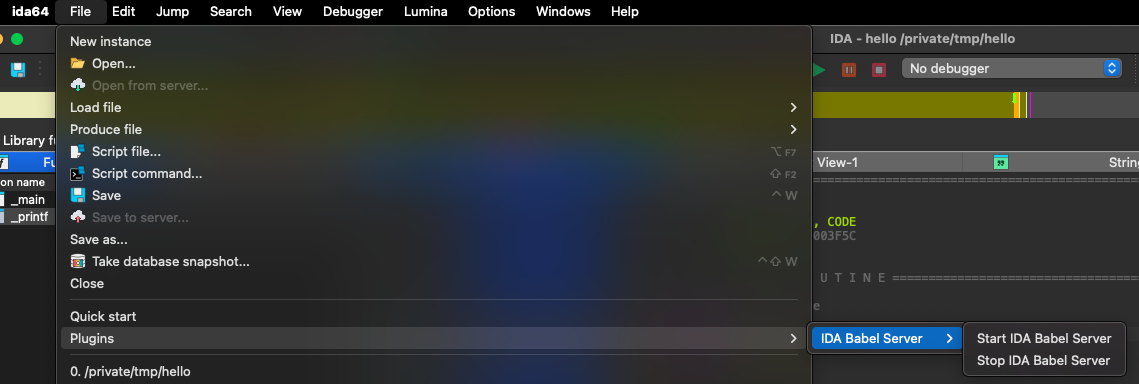Code: ob-idapython
It's been a while since I posted. For the last 6 months or so I've been reverse engineering a very complex binary. This has been both fun and frustrating, but I've learnt loads about reverse engineering in general, and as usual, I've taken a massive amount of notes that I probably won't look at any time soon, and of course I've taken these notes in org-mode. I've wrote about my notes before, and since then it's only improved, the biggest improvement to my notes has been using babel a lot more as it allows me to run quick experiments from within my notes file. Trying to improve my workflow even more, I decided to add idapython to babel, so I could write IDA scripts in my notes file, and then org-babel-execute would send and execute that script in my IDA instance. This required me to write a simple IDA plugin that would start an http server, and an Emacs plugin that would send the content of the source code block to that http server. It's not perfect, with the main drawback being that I don't get the response back in Emacs, but it saves a copy and paste.
IDA plugin
I've only ever wrote a handful of IDA scripts, never a plugin. I already know that the IDA API's documentation is lacking to say the least. What took me a while to figure out, was that I needed to register the Start and Stop actions to the UI in a different class, like so.
class UiAction(idaapi.action_handler_t):
def __init__(self, id, name, tooltip, menuPath, callback):
super().__init__()
self.id = id
self.name = name
self.tooltip = tooltip
self.menuPath = menuPath
self.callback = callback
def registerAction(self):
action_desc = idaapi.action_desc_t(
self.id,
self.name,
self,
"",
self.tooltip,
0,
)
if idaapi.register_action(action_desc):
idaapi.attach_action_to_menu(self.menuPath, self.id, idaapi.SETMENU_APP)
return True
return False
def unregisterAction(self):
idaapi.detach_action_from_menu(self.menuPath, self.id)
idaapi.unregister_action(self.id)
def activate(self, ctx):
self.callback(ctx)
return 1
def update(self, ctx):
return idaapi.AST_ENABLE_ALWAYSThis then allowed me to have actions for the Start and Stop buttons. I won't go into full detail, as you can go and read the source.
Emacs package
This was actually the easier side for me, I've written babel plugins before, The only challenge here was using make-temp-file to store the source code block, before sending that using curl to the http server running in IDA. Again, I won't go into full detail, as you can go and read the source.
Putting it all together
As shown in the project README. First, start the IDA Babel Server.

Then, execute an idapython source block, and the results will show up in the IDA console.
#+BEGIN_SRC idapython :host localhost :port 4000
import idc
func_name = idc.get_func_name(idc.here())
print(f"Current function: {func_name}")
#+END_SRC
